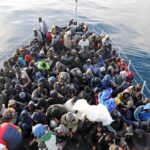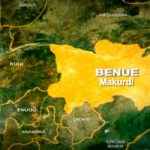Three ISIS Teams Carried out Attacks on Paris, Officials Say
 Three teams of Islamic State attackers acting in unison carried out the terrorist assault in Paris on Friday night, officials said Saturday, including one gunman who may have traveled to Europe on a Syrian passport along with the flow of migrants, reports The New York Times.
Three teams of Islamic State attackers acting in unison carried out the terrorist assault in Paris on Friday night, officials said Saturday, including one gunman who may have traveled to Europe on a Syrian passport along with the flow of migrants, reports The New York Times.
“It is an act of war that was committed by a terrorist army, a jihadist army, Daesh, against France,” President François Hollande told the nation from the Élysée Palace, using an Arabic acronym for the Islamic State. “It is an act of war that was prepared, organized and planned from abroad, with complicity from the inside, which the investigation will help establish.”
As the death toll rose to 129 victims — with 352 others injured, 99 of them critically — a basic timeline of the attacks came into view.
The Paris prosecutor, François Molins, said the attackers were all armed with heavy weaponry and suicide vests. Their assault began at 9:20 p.m. Friday, when one terrorist detonated a suicide bomb outside the gates of the soccer stadium on the northern outskirts of Paris. It ended at 12:20 a.m. Saturday when the authorities stormed a concert hall, the Bataclan. One attacker was killed; two others detonated suicide vests. Inside the hall, 89 people, who had been listening to a rock band, had been shot to death.
The gunman with the Syrian passport — which Greek officials said had been registered at the Aegean island of Leros on Oct. 3 — was 25, and died at the stadium. Another gunman, who died at the concert hall, was 29 and a native of Courcouronnes, about 20 miles south of Paris. He had a criminal record and was known to be associated with extremist Islamic ideology, Mr. Molins said.
The hunt for possible accomplices of the terrorists gained steam on Saturday. Officials in Belgium announced three arrests, one of them linked to a rental car found in Paris. In Germany, the police were exploring whether a man they arrested last week with weapons in his car and his GPS navigator set for Paris was linked to the attacks. But it remained unclear how a plot of such sophistication and lethality could have escaped the notice of intelligence agencies, both in France and abroad.
Mr. Hollande declared three days of national mourning, and said that military troops would patrol the capital. France remained under a nationwide state of emergency.
Mr. Hollande vowed to “be unforgiving with the barbarians from Daesh,” adding that France would act within the law but with “all the necessary means, and on all terrains, inside and outside, in coordination with our allies, who are, themselves, targeted by this terrorist threat.”
The attacks, and the possibility that the Islamic State was to blame, promised to further traumatize France and other European countries already fearful of violent jihadists radicalized by the conflicts in Syria and elsewhere.
The possibility that one of the attackers was a migrant or had posed as one is sure to further complicate the already vexing problem for Europe of how to handle the unceasing flow of people from Syria, Iraq, Afghanistan and elsewhere. It could also lend weight to the xenophobic arguments of right-wing populists like Marine Le Pen, the leader of the National Front party, who on Saturday held a news conference to declare that “France and the French are no longer safe.”
Mr. Hollande actively stepped up French participation in the military air campaign in Syria at the end of September. Just last week, France attacked oil operations under the Islamic State’s control in Syria. On Oct. 8, it conducted a targeted strike against militants in Raqqa, Syria, apparently targeting Salim Benghalem, a Frenchman fighting for the Islamic State.
The attacks, and the threat of the Islamic State, are likely to dominate a summit meeting of leaders of the Group of 20 nations that starts on Sunday in Turkey. President Obama will attend; Mr. Hollande is staying in Paris and sending representatives.
Paris, stricken by shock and grief, remained in a state of lockdown, with public transportation hobbled and public institutions — schools, museums, libraries, pools, food markets — closed. Charles de Gaulle Airport remained open, but with significant delays because of tighter passport and baggage checks.
The archbishop of Paris, Cardinal André Vingt-Trois, said he would celebrate a Mass at the Cathedral of Notre-Dame on Sunday for the victims, their families and France. “Our country has once again known pain and mourning and must stand up to the barbarism propagated by fanatical groups,” he said.
At the Hôpital Européen Georges-Pompidou in western Paris, about 40 people were in surgery as of the early afternoon. Julien Ribes, 33, was at the hospital to search for his friend, who was at the concert hall. “I’m in total shock,” he said.
At the Town Hall for the 11th Arrondissement in Paris, Delphine de Peretti, 35, said she learned early Saturday afternoon that her sister Aurélie, who was at the Bataclan, had been killed. The family had been frantically trying to reach Aurélie all night.
“They told us my sister was dead, but they did not let us see her,” she said. “They said they still have to do some medical analysis. I am like a robot. I don’t know what to do next. I have not watched the news or slept since last night.”
The death toll far surpassed that of a massacre by Islamist extremists at the satirical newspaper Charlie Hebdo and related attacks around the French capital in January. It was the deadliest terrorist attack in Europe since the 2004 train bombings in Madrid, which killed 191 people. And it prompted Mr. Hollande to pronounce France’s first state of emergency since 2005, when riots rocked downtrodden urban areas across the country.
Parisians were left struggling to make sense of their new reality. Parents whose children slept through the ordeal were facing the delicate task of trying to explain what had happened, and why so many planned activities had been canceled and public spaces were closed.
On the Champ de Mars, at the base of the Eiffel Tower and along the pedestrian promenade that hugs the Left Bank of the Seine, joggers and cyclists tried to carry on with their Saturday routines.
Pausing from her morning run near the Musée d’Orsay, Marie-Caroline de Richemont, 32, said she was still trying to process the events, but without succumbing to fear. “This is not Iraq or Afghanistan,” she said. “We are not at war here. We need to stay confident and hopeful.”








